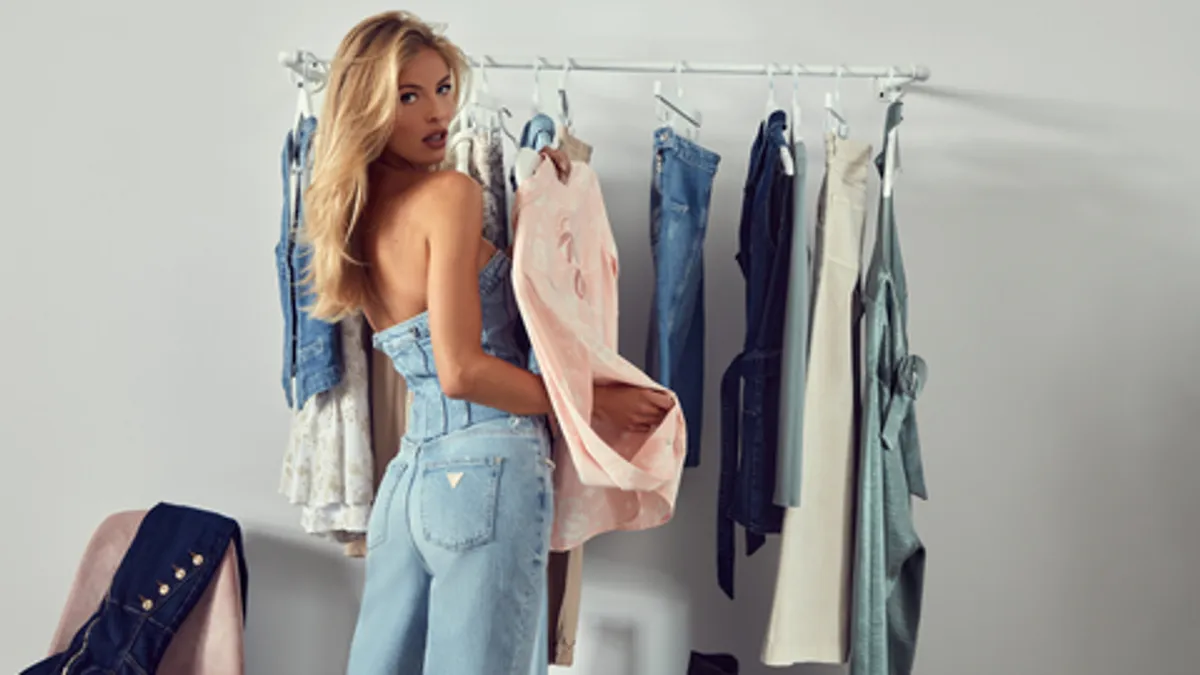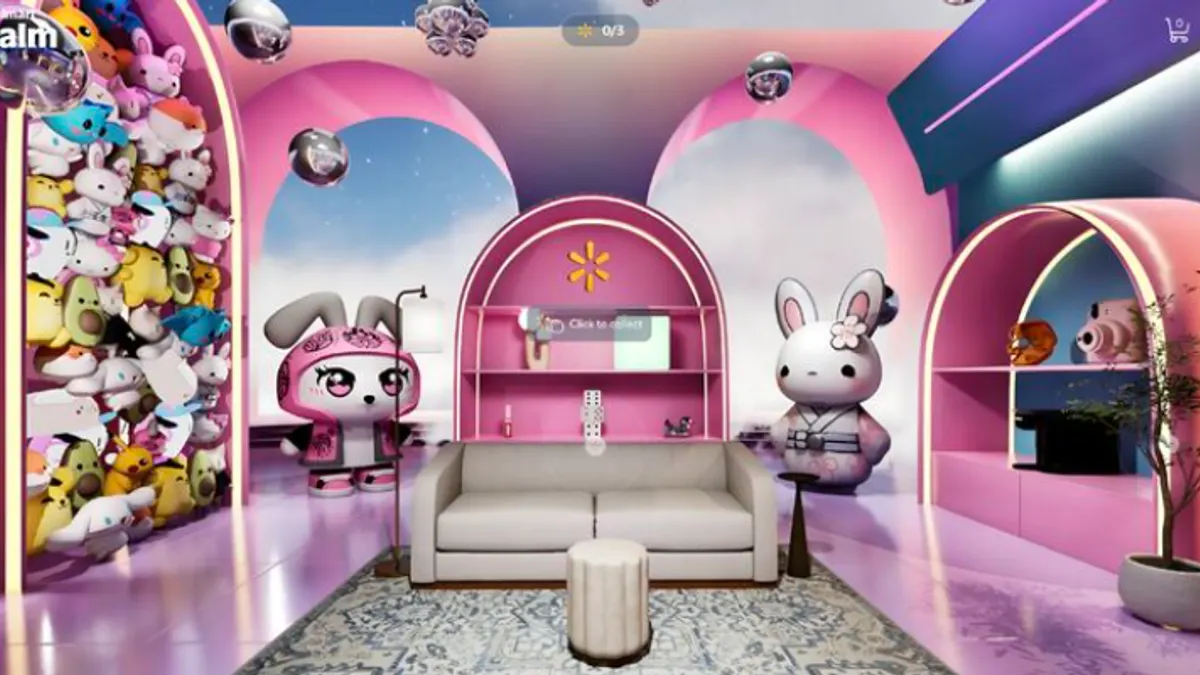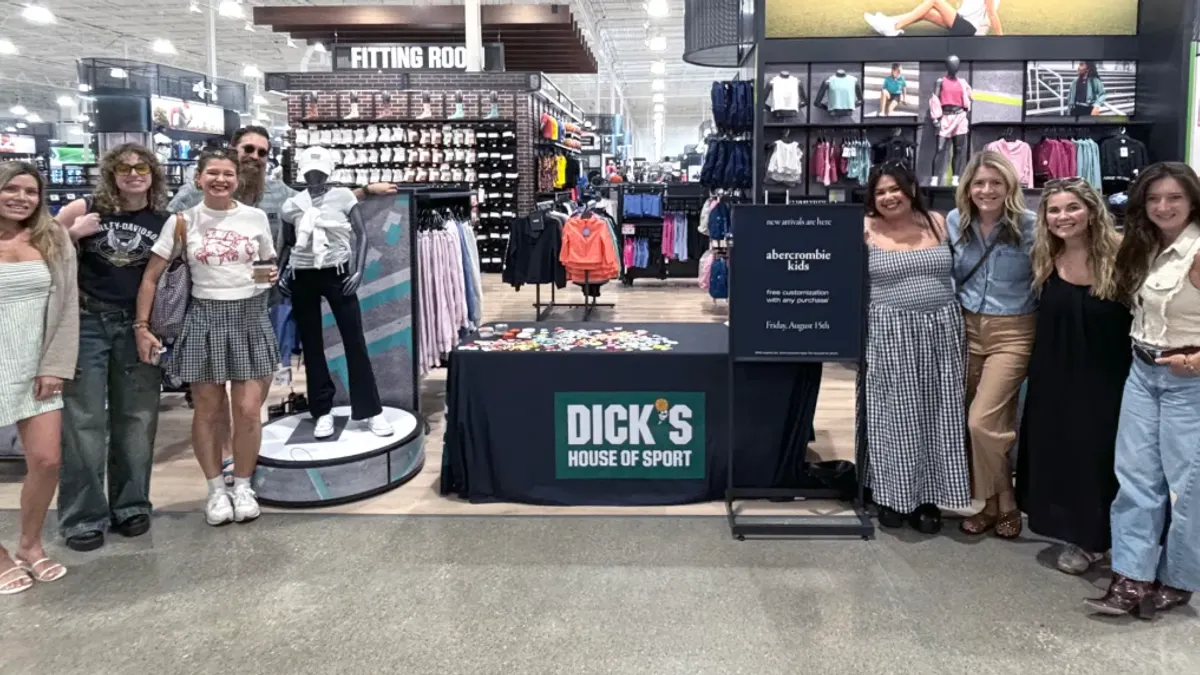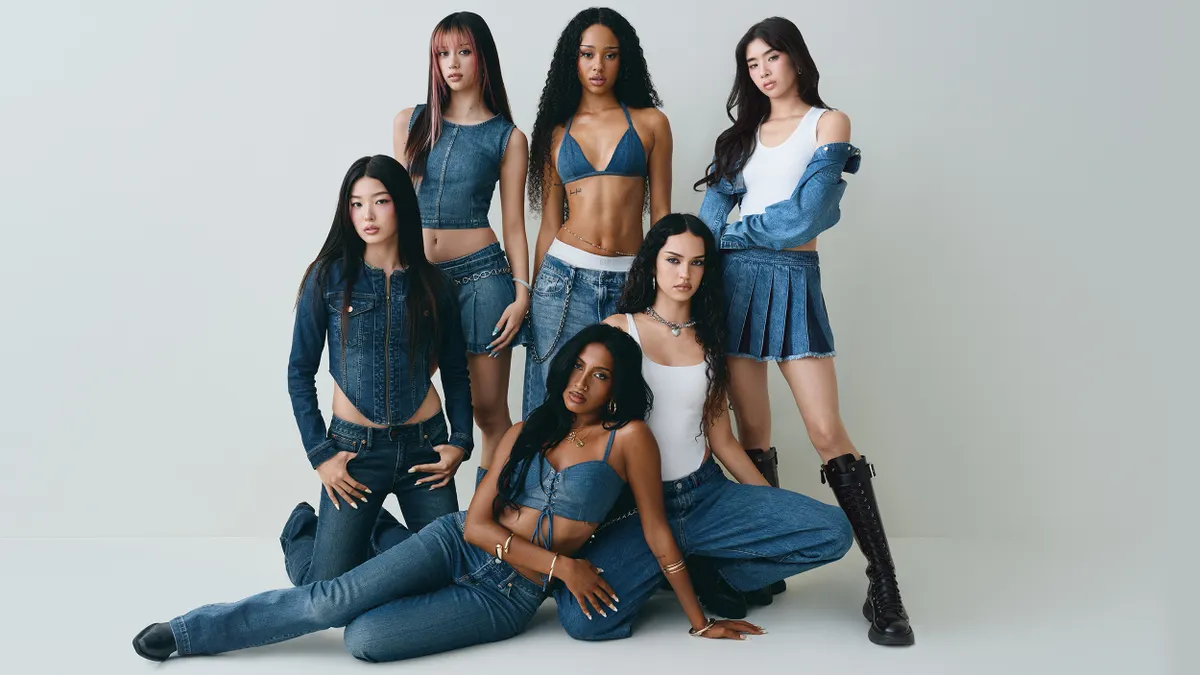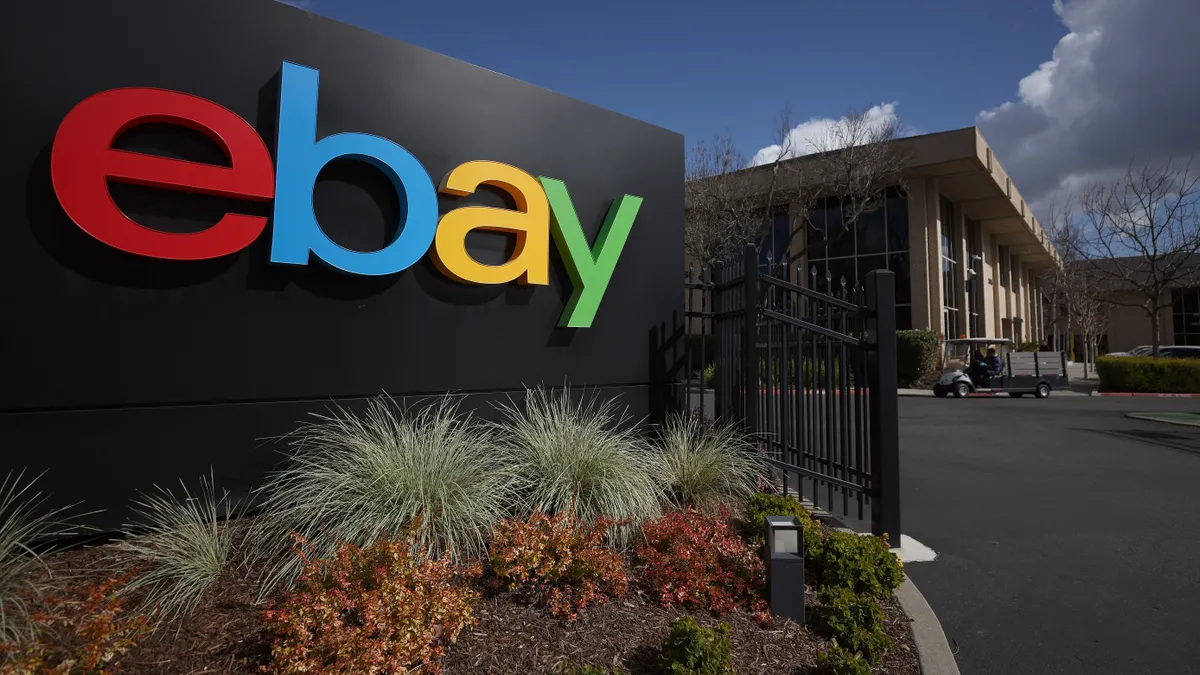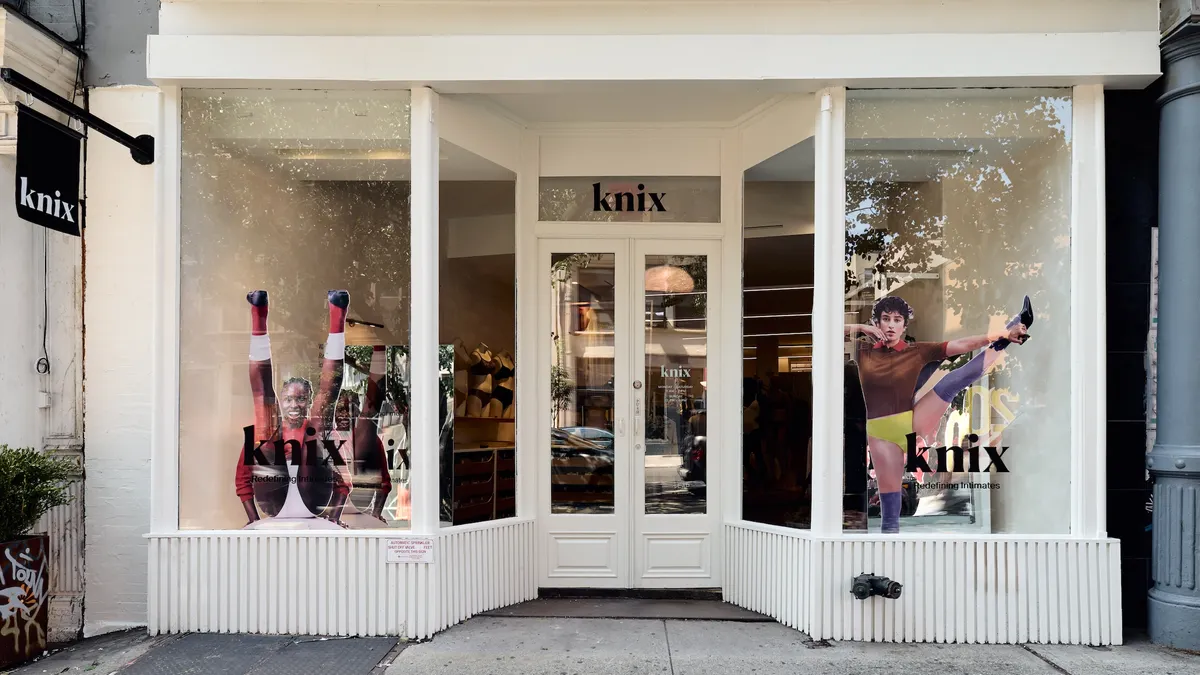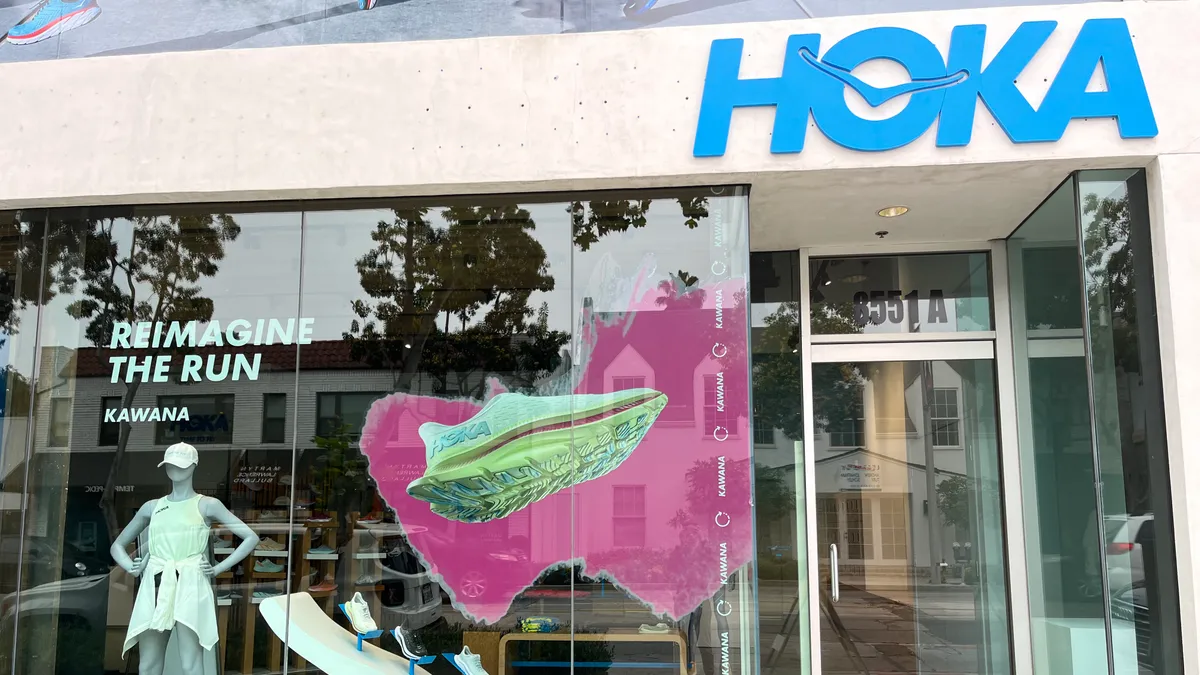It's been another weird week in retail.
Equinox launched a line of commitment-based products in a bid to draw in new gym members, American Girl put the astronaut before the spacesuit with its new doll and the raw water trend caused an absolute flood on Twitter.
This, and more, in this week's Retail Therapy.
Equinox begs gymgoers to #committosomething
It's January 5 and already in households all over the United States New Year's resolutions are failing. This week, we celebrate one brand that's calling out the chink in everyone's armor: commitment.
Every year we say we're going to work out more, and maybe for the first blessed days of January we actually believe ourselves, but then it's the end of the year and Karen down the street is still getting in more steps than the rest of us. "No more!" says luxury fitness club Equinox. Just in time for the New Year, the company started a marketing campaign around a "Commitment Collection" to inspire customers to join the gym (and follow through on a resolution for once).
Since none of the products are actually for sale, we can only imagine Equinox is hoping the display will shame customers into paying for a luxury gym membership. After all, if products like "The Scrubs Sweatsuit" and "Eau De Blood, Sweat & Tears" don't convince you to work out in a luxury environment, we don't know what will.
If the campaign doesn't already feel like a slap in the face, the hashtag — #committosomething — should do the trick. Here's to the year we dethrone the Karen in our lives.
American Girl doll aims for the stars
While we're on the topic of massive flaws in otherwise okay plans, American Girl and NASA collaborated to release an aspiring astronaut doll who looks more like she's waiting in line at a rave than flying to the moon.
American Girl's "Luciana Doll" is meant to show kids how cool STEM can be, with a girl who's "ready to take the next giant leap to Mars." The only problem is that, instead of a space suit, Luciana has a "cosmic-print dress with attached vibrant red purse" and "a shiny holographic choker and special red star charm."
The climate is right for this kind of product — the Kylo Ren challenge seized social media earlier this week, uniting Star Wars fans old and young, and Twitter responses to Luciana Vega have been positive — but it looks like parents will have to cough up an extra $75 for a spacesuit if they want Luciana to be able to breath when she journeys to Mars.
The inspiration may be free, but that 18 inches of "huggable cloth body" will cost you $115 — career at NASA not included.
Like @American_Girl doll #lucianavega - I attended #spacecamp on a #Scholarship at age 12 in 2010!
— Abigail Harrison (@AstronautAbby) January 4, 2018
Now my #nonprofit @TheMarsGen sends #kids to @SpaceCampUSA each year on Full Paid #Scholarships incl. transport!
Apps due 1/15/18 https://t.co/LcvEBYLBK4 #stemgirls #Luciana pic.twitter.com/l3eYuXzQ7x
I want this so bad. How do I justify buying it when my daughter doesn't like dolls. #LucianaVega #AmericanGirlDoll pic.twitter.com/Qk4ZsHsWaW
— WhereDidMyLambGo? (@SageAna0713) December 29, 2017
Meet #LucianaVega: @American_Girl 2018 Girl of the Year! Read more: https://t.co/MtRYHfntTe pic.twitter.com/yO98fXH9YE
— The Toy Book (@ToyBook) January 2, 2018
Don't go chasing raw waterfalls
First it was Swarovski's $185 crystal-encrusted water bottles and now it's the raw water movement reminding us that consumers will pay nearly anything to be on the wellness-driven bandwagon.
Companies like Live Water are charging consumers $37 for 2.5 gallons of "raw water" and people are actually buying it, Food Dive reports. Evidently drawn to the "natural" elements in raw water, drinkers are willing to overlook the risk of waterborne diseases and pay about $20 more than a Poland Spring bottle would cost them.
"The earth constantly offers the purest substance on the planet as spring water," the company's website reads. "We celebrate this ancient life source that humanity flourished from, since the beginning of our existence. We trust it's perfect just the way it is." Needless to say, social media users and a number of news sources disagree.
It might take a while for raw water to be christened with the stamp of approval, but Twitter has at least baptized the trend with a shower of criticism.
I hear raw water and all I think of is the wellness guru on Parks and Rec selling "beef milk" for $60 a gallon pic.twitter.com/KN3yp1ptsg
— Santa Save Our Public Lands Squid (@pemaquid27) January 3, 2018
I don't know what's worse about the raw water trend: the fact that people are drinking unsafe, unfiltered water, or that they're actually paying money for it.
— Dianna E. Anderson (@diannaeanderson) January 3, 2018
Raw water ppl in 3 months: pic.twitter.com/bNuzXXtOu1
— Bay Area Fannibals(@BayAreannibals) January 3, 2018
Amazon falls into Birkenstock's bad books
When Amazon isn't selling private label knockoffs of popular products, the company is apparently stealing traffic from customers who can't spell brand names correctly.
Birkenstock finally had enough, and appealed to a German court, according to Reuters. The company argued that Amazon has been listing misspellings of the brand name, like "Brikenstock," "Birkenstok" and "Bierkenstock" as keywords on Google AdWords, leading unknowing customers to Amazon instead of Birkenstock.
The lawsuit Birkenstock brought against @amazon could mandate a change to your PPC tactics https://t.co/8RkPkfuEi6
— Shawn Fitzgerald (@sfitzgerald9) December 31, 2017
Birkenstock goes at Amazon for taking advantage of customers who can't spell "Birkenstock"https://t.co/A16NDL0T7V pic.twitter.com/f8HIMLqRoo
— Barstool Sports (@barstoolsports) January 2, 2018
This comes about a year after Birkenstock pulled its products from Amazon, citing concerns about counterfeit products, and proves to every independent retailer that Amazon will do literally anything to capture dyslexic customers.
It just goes to show that beating Amazon is about a lot more than battling counterfeits: it's also about having a customer base that can correctly spell your brand's name.







